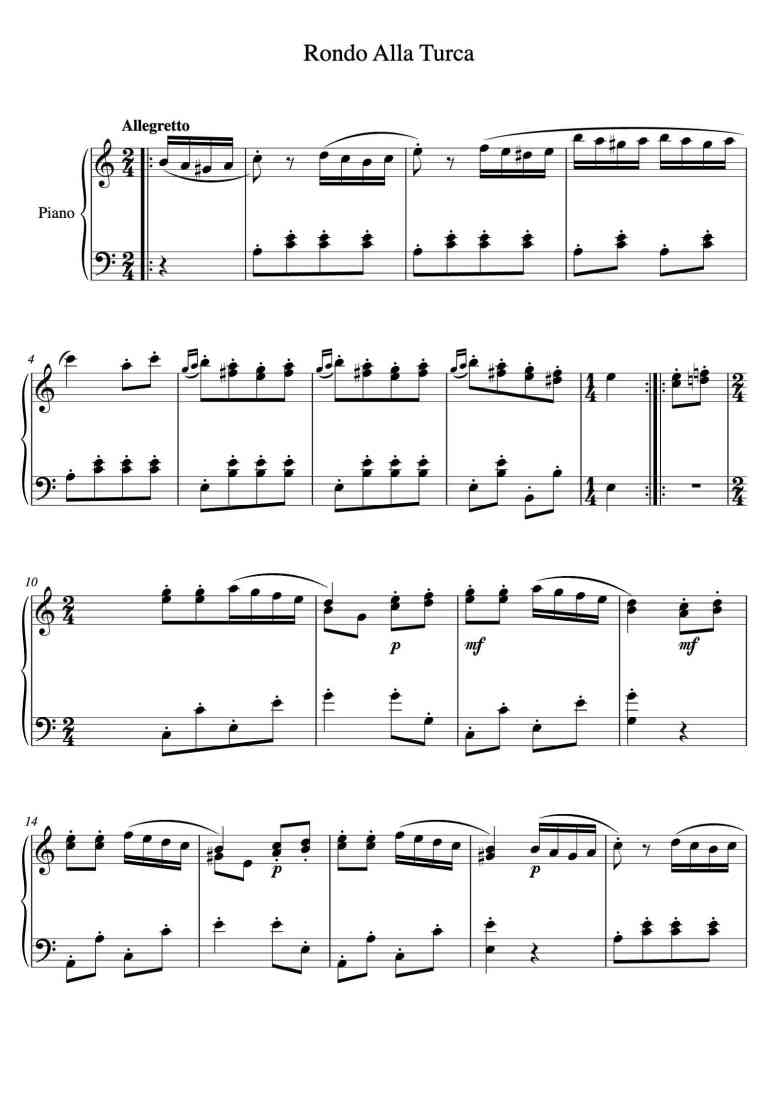1 / 1
Rondo Alla Turca - Wolfgang Amadeus Mozart - Cooktian Winsa
Free Sheet music for Piano
The resources on this platform are uploaded by users. If you believe your intellectual property rights have been infringed upon, please contact us promptly. Email: [email protected]
About This Sheet Music
Rondo Alla Turca, by Wolfgang Amadeus Mozart
Piano Song Names: Rondo Alla Turca
- ArtistWolfgang Amadeus Mozart
- Number of imitations:43
- GenreClassical
- KeyC Major
- Tempo187
- Pages2
- ArrangedWolfgang Amadeus Mozart
- ComposeWolfgang Amadeus Mozart
- IntroductionRondo Alla Turca, Sheet Music is C Major, Composer by Wolfgang Amadeus Mozart and Arr.Wolfgang Amadeus Mozart,Suitable for all Users to play learning.
Other Versions Sheet Music




